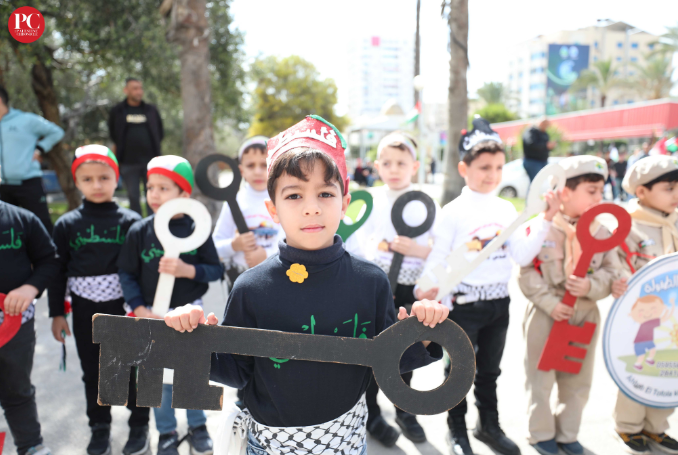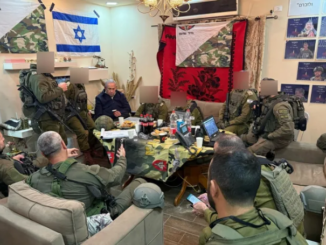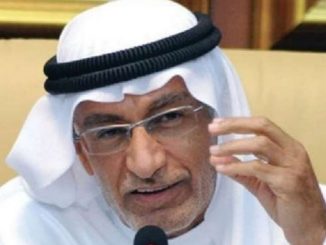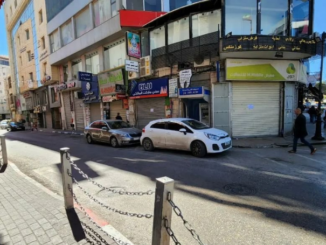
By Benay Blend
On March 30, 1976, Israeli police murdered six Palestinian civilians while they were protesting further expropriation of Palestinian land. Since that date, March 30 has been commemorated as Land Day, in honor of Indigenous sumoud (resilience).
As Yara Hawari notes, it marks “an important event in the Palestinian collective narrative – one that emphasizes Palestinian resistance to Israeli colonization.” Along with reinstating the Palestinian cause as a global struggle, the uprising succeeded in uniting Palestinians in the homeland with the diaspora despite previous “externally engineered geographic and political” divisions among the people.
Like Al-Nakba al-Mustamera (the ongoing Nakba), the events that led to Land Day continue to this day. Ethnic cleansing, discrimination, destruction of land and ecosystems, and burning of trees—all remain part of Israeli policy regarding the Palestinians.
As Land Day approaches, Israel’s far-right Finance Minister Bezalel Smotrich suggested that the village of Huwwara be “wiped out” by the Israeli government. His comment occurred in response to growing Palestinian resistance in the area. More recently, Smotrich proclaimed in Paris that “there’s no such thing as the Palestinian people” because Palestinians do not exist.
Although his remarks were inflammatory, Smotrich’s comments expressed out loud what the Zionist state has been doing since the Nakba. “There should also be no doubt that what Smotrich is talking about and inciting is the genocide of the Palestinian people,” Ali Abunimah claims. “Nor are Smotrich’s remarks ill-considered outbursts; they reflect deep and careful thinking and a coherent ideology.”
For these reasons, Mawusi Ture, activist and member of Black Alliance for Peace, reiterated on Facebook a call from Adalah Justice Project to tell Ben Jealous, former head of the NAACP, now leader of the Sierra Club, that “there is no environmental justice without upholding the rights of indigenous peoples from Palestine to Turtle Island.” Adalah had asked that people write to the Sierra Club Board of Directors asking that they cancel an Israeli excursion planned for March 2023.
This is not the first time that the Sierra Club has been criticized for these trips. In February 2022, Palestinian activists asked that the group live up to its anti-racism and environmental mission statement by canceling its “apartheid tours.” Turning its back on Palestinians, the group initially canceled its tours but then caved under Zionist pressure.
This year, Adalah took particular aim at Ben Jealous, who, they say, resembles other progressive figures who “fall short when it comes to Palestine.” Indeed, Mondoweiss reported that in 2017 Jealous had supported an anti-BDS executive order prohibiting anyone who boycotts the state of Israel from doing business with the State of Maryland.
“The Palestinian cause is not a cause for Palestinians only, but a cause for every revolutionary, as a cause of the exploited and oppressed masses in our era,” declared the late Ghassan Kanafani. It is fitting that this quote introduces NDN Collective’s position paper “The Right of Return is Land Back.”
There is a tendency, even among pro-Palestinian activists, to conclude that the current Israeli government is an aberration rather than the logical conclusion of 75 years of ethnic cleansing of the Palestinian people from their lands. As NDN explains, the current problems that all Indigenous face stem from “settler colonialism, genocide and apartheid.”
The proposed destruction of a forest in Atlanta, Georgia in order to make way for Cop City serves as a case study for the ways in which settler colonialisms are connected. This area already had a scarred history. In the 1800s, it was stolen from the Muscogee people, then afterwards used as a plantation. In the early 1900s, it was the site of prison farm that forced the inmates to perform unpaid agricultural labor. At present the Atlanta Police Department (APD) uses it for a firing range.
The present controversy seeks to turn 300 acres of forest into a tactical training ground featuring a mock city. As Kwame Olufemi explains,
“To be clear, cop city is not just a controversial training center. It is a war base where police will learn military-like maneuvers to kill black people and control our bodies and movements. The facility includes shooting ranges, plans for bomb testing, and will practice tear gas deployment. They are practicing how to make sure poor and working-class people stay in line. So when the police kill us in the streets again, like they did to Rayshard Brooks in 2020, they can control our protests and community response to how they continually murder our people” – Kwame Olufemi, Community Movement Builders.”
The proposed facility includes military-grade training facilities, a mock city to practice urban warfare, explosives testing areas, dozens of shooting ranges, and a Black Hawk helicopter landing pad.
The U.S police began as “slave patrols” to capture enslaved Black people escaping plantations, now their goals are modernized to promote white supremacy and capitalist interests, but they are pretty much the same as in the beginning. In the wake of police murders of Tyre Nichols (shot during a routine traffic stop) and Manuel Esteban Paez Terán (shot while protesting Cop City), this new development would arm more police in what Black Alliance for Peace calls a “domestic army” to terrorize the working-class and poor.
Moreover, the US military already provides training for forces around the world, including Israel. As Eran Efrati, director of campaigns and partnerships for the progressive group Jewish Voice for Peace, explains, these “exchanges refine and enhance the militarization rooted in American policing with Israeli tactics and technology of occupation and apartheid that are being tested on Palestinians on a daily basis.”
During these training in Israel, US and Israeli officials visit checkpoints, prisons, airports, and other sites of human rights abuses, where they learn to refine techniques used to repress dissent in both countries. “The kinds of training police are given in Israel is actually part of the problem because it encourages a warrior mindset in police and exposes them to practices that would be unconstitutional in the U.S,” Alex Vitale, a professor of sociology, told The Intercept.
“Founded by Robert Friedmann, Professor Emeritus of Criminal Justice at Georgia State University, Georgia International Law Enforcement Exchange (GILEE) is the local manifestation of the Deadly Exchange program,” writes Black Alliance for Peace—Atlanta, “in which U.S. and Israeli police and Israeli military share hyper-militarized policing techniques and technology and physically travel to zionist Israel to engage in this exchange.”
This Deadly Exchange works both ways. In a recent visit, US Secretary of State Antony Blinken put pressure on the Palestinian Authority (PA) to apply America’s security plan in order to reestablish control over Jenin and Nablus. Palestinian resistance fighters have become more active throughout the region in response to the escalation of Israeli violence.
On August 11, 2022, the Adalah Justice Project sent a letter to the environmental org. condemning “upcoming trips to apartheid Israel that green light Israeli colonialism and harm Indigenous Palestinians.” Though the Sierra Club declares that it bases its itinerary on “just and transformative outings,” these proposed trips to Israel are anything but the “intersectionality” that it claims to practice. Palestinians are once again erased from their land by the group’s decision, as if they do not exist.
In a statement commemorating Land Day 2022, Masar Badil, Palestinian Alternative Revolutionary Path Movement, referred to it as a “beacon on the road to liberation and return” for all Palestinians in the homeland and the diaspora. Moreover, they called on “all democratic and progressive forces in the world” to stand in solidarity, thus reaffirming their commitment to inclusivity in their struggle to defend “their land, their existence and their rights.”
On that same day, Samidoun-Palestinian Prisoner Solidarity Network reiterated that “the Day of the Land is not only an anniversary but a day of living struggle to uproot colonialism from Palestine.” While Palestinian and solidarity movements are increasingly targeted by settler regimes, writes activist/ journalist Ramzy Baroud, it is important to remember that Palestinians are “a nation of people with political agency who are capable of articulating, resisting and, ultimately, winning their freedom as part of a much greater fight for justice and liberation throughout the world.”
According to activist/writer Omar Zahzah, the many-layered experience of settler colonialism has had the “inadvertent effect of kindling a profound sense of empathy and joint struggle” between Palestinians and Indigenous peoples around the world (NDN Collective, LandBack Magazine, 2022, p. 45).
Heeding his words, on Land Day 2023, commemorate the martyrs of March 30, 1976, but also celebrate the struggle for liberation and LandBack that continues until today.

– Benay Blend earned her doctorate in American Studies from the University of New Mexico. Her scholarly works include Douglas Vakoch and Sam Mickey, Eds. (2017), “’Neither Homeland Nor Exile are Words’: ‘Situated Knowledge’ in the Works of Palestinian and Native American Writers”. She contributed this article to The Palestine Chronicle.







